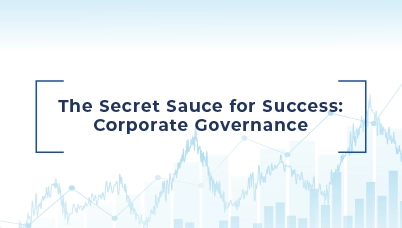What is ETF?
Posted On Monday, Sep 27, 2021
ETF Investing– A Passive Investors Friend
| Table of Contents | |
| Sr no | Header |
1 | What is ETF |
2 | What are the categories of ETF |
3 | What are the advantages of ETF |
To begin with ETF Investing is investing in MF scheme which is managed passively.
You see, there are two types of mutual fund schemes - Actively managed & Passively managed mutual fund schemes.
As the name would suggest, active investing means an “active” or hands-on approach to investing, which is the responsibility of the fund manager.
The fund manager looks into all the qualitative & quantitative factors in detailed research, and decides where to allocate the money coming into the fund.
Passive investing on the other hand meticulously tracks / replicates a market index. Unlike active investing, in this the fund manager is not required to actively pick the stocks the fund will be made of. This is what makes passive funds comparatively easier to invest in, than the active funds.
So, you should know ETF investing meaning.
What is an ETF?
ETF or Exchange-Traded Funds are simply a type of mutual fund.
Just like any mutual fund, ETF also has a fund manager who pool the money coming in from a number of investors to invest.
It too has a Net Asset Value (NAV) like any other mutual fund.
But there are two things that set an ETF apart from its counterparts:
• ETF’s can be traded on a stock exchange, just like stocks.
• ETF is a passively managed fund that replicates and tracks an index and aims to beat its results in the long run.
So, in simple words ETFs are traded on a stock exchange just like stocks.But the price of each ETF unit is dependent on the scheme NAV.
You need to open a Demat and trading account if you wish to start ETF Investing in India.
Categorisation of ETF’s:
ETF Investing is categorised in the following:
I. Equity ETF – These funds invest in shares and/or other forms of equity of various organisations.
II. Gold ETF – These funds deal in physical gold assets. So, they are a commodity exchange-traded fund. Investing in these funds means, investing in gold, without the headache of having the physical gold with you.
III. Debt ETF – These are funds that deal in fixed return securities like government bonds or debentures.
Advantages of ETF:
a. Diversification: When you buy shares of a company, you are limited to the performance of that company. This exposes you to a higher degree of risk. However, ETF investing allows you to diversify over equities of different companies – thus reducing risk.
b. Lower Expense Ratio: Expense ratio of ETF are less than actively managed schemes on account of passively managed funds.
c. A Security you can trade: You can track changes in ETF value throughout the day and buy/sell anytime during market hours. This gives you more liquidity.
So, finally to recap, we told you about ETF investing meaning, ETF investing in India and Advantages of ETF.
Now, if you want to start investing with an ETF, you can start with us right here.
Disclaimer, Statutory Details & Risk Factors:
The views expressed here in this article / video are for general information and reading purpose only and do not constitute any guidelines and recommendations on any course of action to be followed by the reader. Quantum AMC / Quantum Mutual Fund is not guaranteeing / offering / communicating any indicative yield on investments made in the scheme(s). The views are not meant to serve as a professional guide / investment advice / intended to be an offer or solicitation for the purchase or sale of any financial product or instrument or mutual fund units for the reader. The article has been prepared on the basis of publicly available information, internally developed data and other sources believed to be reliable. Whilst no action has been solicited based upon the information provided herein, due care has been taken to ensure that the facts are accurate and views given are fair and reasonable as on date. Readers of this article should rely on information/data arising out of their own investigations and advised to seek independent professional advice and arrive at an informed decision before making any investments.
Mutual fund investments are subject to market risks read all scheme related documents carefully.
Please visit – www.quantumamc.com/disclaimer to read scheme specific risk factors. Investors in the Scheme(s) are not being offered a guaranteed or assured rate of return and there can be no assurance that the schemes objective will be achieved and the NAV of the scheme(s) may go up and down depending upon the factors and forces affecting securities market. Investment in mutual fund units involves investment risk such as trading volumes, settlement risk, liquidity risk, default risk including possible loss of capital. Past performance of the sponsor / AMC / Mutual Fund does not indicate the future performance of the Scheme(s). Statutory Details: Quantum Mutual Fund (the Fund) has been constituted as a Trust under the Indian Trusts Act, 1882. Sponsor: Quantum Advisors Private Limited. (liability of Sponsor limited to Rs. 1,00,000/-) Trustee: Quantum Trustee Company Private Limited. Investment Manager: Quantum Asset Management Company Private Limited. The Sponsor, Trustee and Investment Manager are incorporated under the Companies Act, 1956.
Related Posts
-

Be Good. Do Good: The Quantum Way
Posted On Tuesday, Jul 30, 2024
In the business environment, good corporate governance is paramount to the success and sustainability of organisations.
Read More -

What is Fund of Funds?
Posted On Friday, Oct 01, 2021
As an investor, Fund of Funds is something you should definitely know about.
Read More -

Equity Mutual Funds – Are They For You?
Posted On Friday, Oct 01, 2021
Every investor at one point in time has wondered or looked up for what is Equity Mutual Fund meaning.
Read More



